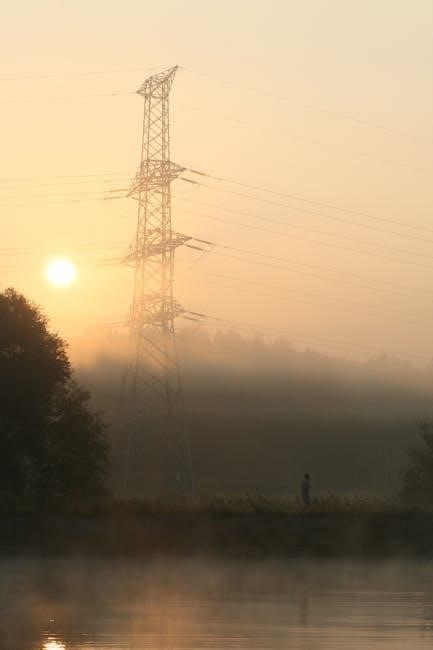
electric water heater energy guide
Electric water heater energy guide provides information on various types of heaters, including heat pump and conventional storage water heaters, to help consumers make informed decisions about their energy usage and costs effectively always.
Understanding Electric Water Heater Options
When it comes to electric water heaters, there are several options to consider, each with its own set of characteristics and benefits. The first step is to determine the type of water heater that best suits your needs, taking into account factors such as household size, water usage, and available space. Electric water heaters can be categorized into different types, including conventional storage water heaters, heat pump water heaters, and tankless water heaters. Conventional storage water heaters are the most common type and use electric resistance elements to heat the water. Heat pump water heaters, on the other hand, use heat from the air to heat the water, making them a more energy-efficient option. Tankless water heaters heat water only when needed, providing a continuous supply of hot water. Understanding the different options and their features is essential to making an informed decision when selecting an electric water heater for your home. Various resources are available to help consumers navigate the process and choose the most suitable option.

Energy Efficiency of Electric Water Heaters
Electric water heaters have varying energy efficiency levels, affecting overall energy consumption and costs significantly always using different technologies and designs effectively.
Uniform Energy Factor (UEF) Ratings
The Uniform Energy Factor (UEF) ratings are a new industry standard for measuring energy efficiency in water heaters, replacing the old EF ratings as of June 12, 2017. This change aims to provide a more accurate representation of a water heater’s efficiency. The UEF rating takes into account various factors, including the heater’s ability to recover heat, its standby losses, and its cycling losses. A higher UEF rating indicates a more energy-efficient water heater. The UEF ratings range from 0 to 1, with higher values representing greater efficiency. For example, a water heater with a UEF rating of 0.93 is considered to be 93% efficient. The UEF ratings are expected to help consumers make informed decisions when purchasing a new water heater, and to encourage manufacturers to produce more energy-efficient products. By considering the UEF ratings, consumers can reduce their energy consumption and lower their utility bills. The UEF ratings are an important development in the water heater industry, and are expected to have a significant impact on the market. The new standard is designed to be more comprehensive and accurate than the old EF ratings.

Comparing Electric Water Heater Types
Electric water heater types include conventional storage and heat pump models, each with unique characteristics and benefits, helping consumers compare and choose the best option for their needs always effectively.
Heat Pump Water Heaters vs Conventional Storage Water Heaters
Heat pump water heaters and conventional storage water heaters are two distinct types of electric water heaters available in the market, each with its own set of advantages and disadvantages. The heat pump water heaters are known for their high energy efficiency, using heat from the surrounding air to heat the water, whereas conventional storage water heaters use electric resistance heating elements to heat the water. The heat pump water heaters are generally more expensive to purchase upfront, but they can provide significant energy savings over time. On the other hand, conventional storage water heaters are less expensive to purchase, but they may not provide the same level of energy efficiency as heat pump water heaters. The choice between these two types of water heaters ultimately depends on the specific needs and preferences of the consumer, including factors such as budget, energy usage, and environmental concerns. Overall, both types of water heaters have their own strengths and weaknesses, and consumers should carefully consider these factors when making a decision. Additionally, the installation and maintenance costs of these water heaters should also be taken into account. By considering these factors, consumers can make an informed decision that meets their needs and provides the best value for their money. Furthermore, the durability and reliability of these water heaters are also important considerations, as they can impact the overall cost of ownership and the need for repairs or replacement over time.

Benefits of High Efficiency Electric Water Heaters
High efficiency electric water heaters offer significant energy and cost savings, reducing environmental impact and providing long-term benefits to households and businesses effectively always with proper installation and maintenance methods.
Cost Savings and Energy Star Certification
Energy Star certification is a key factor in determining the cost savings of electric water heaters, with certified models using significantly less energy than traditional models, resulting in lower utility bills for households.
The cost savings can be substantial, with some households saving up to 550 per year on their electric bills, making Energy Star certified electric water heaters a worthwhile investment for those looking to reduce their energy costs.
Additionally, the Energy Star certification process takes into account various factors, including the water heater’s energy efficiency, performance, and environmental impact, ensuring that certified models meet rigorous standards for energy efficiency and sustainability.
By choosing an Energy Star certified electric water heater, consumers can enjoy significant cost savings while also reducing their environmental footprint, making it a win-win situation for both households and the environment.
Overall, the Energy Star certification is an important consideration for those looking to purchase an electric water heater, as it provides a reliable indicator of the model’s energy efficiency and cost savings potential.

Upgrading to a High Efficiency Electric Water Heater
Upgrading to high efficiency electric water heaters offers benefits, including reduced energy consumption and lower costs, with various options available to suit different needs and budgets effectively always online.
Preparing for a Clean Energy Future
As the world shifts towards a cleaner and more renewable energy supply, it is essential to consider the role of electric water heaters in this transition. The internet provides a wealth of information on this topic, including guides and resources to help consumers make informed decisions. With the increasing demand for energy efficiency, electric water heaters are becoming a crucial part of the clean energy future. By upgrading to high-efficiency electric water heaters, households can significantly reduce their energy consumption and lower their environmental impact. Moreover, advancements in technology have led to the development of more environmentally friendly heat pump water heaters, which are a worthy investment for those looking to reduce their carbon footprint. As the energy landscape continues to evolve, preparing for a clean energy future with efficient electric water heaters is a step in the right direction. This preparation involves staying informed about the latest developments and options available in the market, enabling consumers to make the best choices for their needs and the environment.